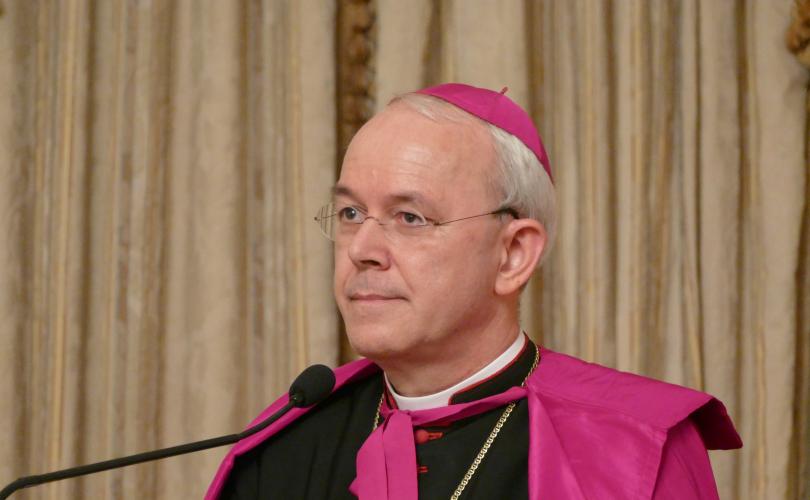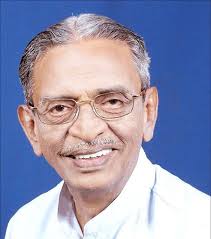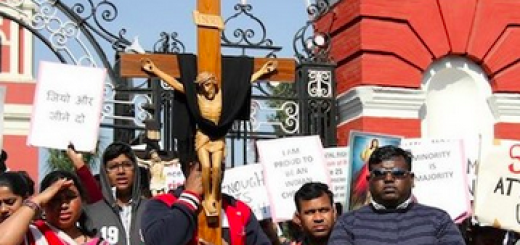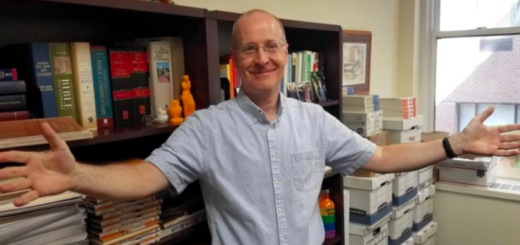Let dogs bark, Caravan must move on! Bishop Schneider: There is no divine positive will or natural right to diversity of Religions!

LIFESITE
June 1, 2020
There have been statements made by other Ecumenical Councils that have become obsolete and been forgotten or have even been corrected by the later Magisterium.'
Two documents Bishop Schneider discusses in his article below are ‘Dignitatis Humanae’ of Vatican II, over 50 years ago and the very recent ‘Human Fraternity for World Peace’ of Feb.4, 2019, of Pope Francis signed with Sheik Ahmed el-Tayeb in Abu Dhabi.
Both speak of Religious freedom. Today many bishops say Francis has erred in saying ‘All religions are willed by God’. ‘No’ says Francis: “I openly reaffirm this: from the Catholic point of view the document does not move one millimeter away from the Second Vatican Council.”
Church of Satan?
The core of the contention is to what extent freedom of individual conscience can go: “to affirming and spreading a Church of Satan?” which exists today. Yes says the Abu Dhabi statement: ‘All religions are willed by God’ not stated that explicitly in the Vatican document: ‘Dignitatis Humanae’, quite true.
Francis therefore continues in his firm friendship with his close friend, Eugenio Scafaldi, a staunch ‘Atheist’. His stand is vindicated by the supremacy of every individual commanding conscience which is over and above the commands of the Church or popes.
Commanding Conscience Supreme!
Retired Pope Benedict said it and we quoted it several times. This is what I studied in Rome and convinced of. Why? Because, if all are children of god, all, believer or atheist, have equal right to follow his/her commanding conscience.
That alone can enforce human fraternity, the core of Abu Dhabi statement and the whole thrust of SON OF MAN, the flage of Jesus, binding together the whole humanity. So let the dogs bark, but the caravan should march on!
Out go all Tradition!
If so what happens: Out goes Churche’s traditional teaching, ‘Catholic church alone is one willed by God, so all the rest should be evangelized to become Catholic and in-comes Pope’s stand, Proselatization is a solemn Nonsense, and our stand all organized religions should vanish to give supremacy to individual commanding conscience to believe, not believe, even spread a church of Satan!
To learn more about the theological-philosophical intricacies of the current dog-fight for and against Francis, read Bishop Schneider and come to your own conclsions. james kottoor, editor ccv.
Please read below Bishop Schneider!
There is sufficient reason to suggest that a cause and effect relationship exists between the Second Vatican Council’s Declaration on Religious Freedom, Dignitatis Humanae, and the Document on Human Fraternity for World Peace and Living Together, signed by Pope Francis and Sheik Ahmed el-Tayeb in Abu Dhabi, on February 4, 2019. On his return flight to Rome from the United Arab Emirates, Pope Francis himself told journalists: “There is one thing … I would like to say. I openly reaffirm this: from the Catholic point of view the Document does not move one millimeter away from the Second Vatican Council. It is even cited, several times. The Document was crafted in the spirit of the Second Vatican Council.”
Dignitatis Humanae reaffirms the Church’s traditional doctrine, stating: “We believe that this one true religion subsists in the Catholic and Apostolic Church,” and it reasserts the “moral duty of men and societies toward the true religion and toward the one Church of Christ” (n.1). Unfortunately, just a few sentences later, the Council undermines this truth by setting forth a theory never before taught by the constant Magisterium of the Church, i.e., that man has the right founded in his own nature, “not to be prevented from acting in religious matters according to his own conscience, whether privately or publicly, whether alone or in association with others, within due limits” (ut in re religiosa neque impediatur, quominus iuxta suam conscientiam agat privatim et publice, vel solus vel aliis consociatus, intra debitos limites, n. 2). According to this statement, man would have the right, based on nature itself (and therefore positively willed by God) not to be prevented from choosing, practicing and spreading, also collectively, the worship of an idol, and even the worship of Satan, since there are religions that worship Satan, for instance, the “church of Satan.” Indeed, in some countries, the “church of Satan” is recognized with the same legal value as all other religions.
The only condition that Dignitatis Humanae places on religious freedom is that “just public order” be observed (n. 2). And so a religion called “the church of Satan” is able to worship the Father of Lies, so long as they observe “public order” within due limits. Hence the freedom not to be prevented in choosing, practicing and spreading the worship of Satan, individually or collectively, would be a right that has its foundation in human nature, and is therefore positively willed by God.
The dangerous ambiguity of this statement is concealed by the fact that it is part of a single sentence, whose first part obviously corresponds to the traditional and constant doctrine of the Church. This first part says: “in religious matters, no one should be forced to act against his conscience” (ut in re religiosa neque aliquis cogatur ad agendum contra suam conscientiam, n.2), i.e., no one should be forced against his will to believe in God and accept a religion, even the only true one religion, which is the Christian religion.
Truth and error are being asserted in one and the same sentence — in the same breath, so to speak. The existence and exercise of free will and, consequently, the freedom from external coercion, are founded in human nature itself, and are therefore willed by God. The faculty to choose between good and evil, truth and error, between the only one and true religion and other religions, is founded in human nature. However, one cannot conclude from the existence of the faculty to choose between good and evil, between truth and error, that there follows the natural right to choose, execute and spread error, i.e. a false religion.
Immunity from external coercion in accepting the only one true Faith is a natural right. It is also a natural right not to be forced to carry out evil (sin) or error (false religion). However, it does not follow from this that God wills positively (natural right), that man should not be prevented from choosing, carrying out and spreading evil (sin) or error (false religion). One has to keep in mind this fundamental distinction between the faculty to choose and do evil, and the right to choose and do evil. God tolerates evil and error and false religions; He even tolerates the worship of the so-called “church of Satan.” However, God’s tolerance or allowance (His permissive will) of evil and error does not constitute in man a natural right to choose, practice and spread them, i.e. it does not constitute God’s positive will. Christian Apologists in the first centuries told the pagan civil authorities that, if Christians would worship a false religion, the State could forbid such a religion. The key point in the first-century Christian apologetics was this: to prove the truth of the Christian religion and the falsehood of pagan religions. Tertullian said that all pagan , i.e. non-Christian religions, are “worshipping a lie, and they commit the crime of real irreligion against the truth” (Apologeticum, 24). How can immunity from coercion in choosing and committing a crime against the truth be a right based on man’s nature itself and, therefore, positively willed by God? St. Melito of Sardis, a holy bishop and apologist from the second century, said: “The greatest of all errors is this: when a man is ignorant of God, and in God’s stead worships that which is not God” (Eus. h.e. 4, 26)
There are two distinct realities. It is one thing to force someone against his conscience to accept a religion and carry out religious acts. It is another to proclaim a natural right, positively willed by God, to choose, practice and spread error and false religions, as in the case, for instance, of choosing, practicing and spreading the religion of the “church of Satan.”
For anyone who is intellectually honest, and is not seeking to square the circle, it is clear that the assertion made in Dignitatis Humanae, according to which every man has the right based on his own nature (and therefore positively willed by God) to practice and spread a religion according to his own conscience, does not differ substantially from the statement in the Abu Dhabi Declaration, which says: “The pluralism and the diversity of religions, color, sex, race and language are willed by God in His wisdom, through which He created human beings. This divine wisdom is the source from which the right to freedom of belief and the freedom to be different derives.”
How can this fact be explained, given that the aforementioned problematic statement in Dignitatis Humanae was made by an Ecumenical Council? The first basic thing to consider is the fact that both Popes of the Council — John XXIII and Paul VI — and Vatican II itself, clearly stated that, unlike all previous Councils, it had neither the aim nor the intention to propose its own doctrine in a definitive and infallible way. Thus, in his address at the solemn opening of the Council, Pope John XXIII said: “The main purpose of this Council is not, therefore, the discussion of one or another theme of the fundamental doctrine of the Church.” He added that the character of the Council’s magisterium would be “predominantly pastoral” (October 11, 1962). For his part, Pope Paul VI said in his address at the last public session of the Council, that Vatican II “made its program” from “the pastoral character” (7 December 1965). Furthermore, in a note made by the Council’s Secretary-General, on November 16, 1964, one reads: “Taking conciliar custom into consideration and also the pastoral purpose of the present Council, the sacred Council defines as binding on the Church only those things in matters of faith and morals which it shall openly declare to be binding.”
There have been statements made by other Ecumenical Councils that have become obsolete and been forgotten or have even been corrected by the later Magisterium.
Let us consider a few of the obsolete and erroneous statements made by previous Ecumenical Councils, so as not to be scandalized by the fact that a non-infallible affirmation in a conciliar Declaration (not even a Constitution or Decree) like Dignitatis Humanae, can be corrected by the Magisterium in the future.
The IV Ecumenical Council of Constantinople (870) harshly condemned Photios, Patriarch of Constantinople, in Canon 4, declaring that he was a “dangerous wolf in Christ’s flock and that he filled the entire world with a thousand riots and agitations, and that he was never a bishop, and all the churches and altars, consecrated by him, should be re-consecrated.” Yet the Byzantine Orthodox Church venerates this same Photios as “Saint Photios the Great and Ecumenical Patriarch of Constantinople,” and it celebrates his liturgical feast on February 6. With a future union of the Byzantine Greek Orthodox Church and the Holy See, Canon 4 of the IV Council of Constantinople would most certainly be abolished.
The III Ecumenical Lateran Council (1179) stipulated in Canon 26 that neither Jews, nor Muslims, could employ Christians as workers in their homes. It also said that Christians who dared to live in the homes of Jews and Muslims should be excommunicated. Can the Catholic Church today still maintain such an affirmation made by an Ecumenical Council?
The IV Lateran Council (1215) titled an entire Constitution (Constitution 4), “On the pride of the Greeks against the Latins” (De superbia Graecorum contra Latinos). Such an affirmation is surely offensive to our separated brethren.
The same Council titled another Constitution (Constitution 26) “The Jews must be distinguished from the Christians by their clothing.” And Constitution 27 states that Jews should not hold public offices.
The Ecumenical Council of Constance (1415), in its 13th session, excommunicates those priests who administer Holy Communion under both species.
Let us consider another example. The Ecumenical Council of Florence (1439) stated that the matter (materia) of priestly ordination was the delivery of the chalice, and completely omitted any mention of the laying on of hands by the bishop. It stated: “The sixth is the sacrament of the Order. The matter of this sacrament is what confers the Order. Thus, the presbyterate is conferred with the delivery of the chalice with wine and the paten with bread” (Bull of the union with the Armenians Exultate Deo, 22 November 1439).
In 1947, Pope Pius XII corrected this error by reasserting the perennial Catholic doctrine, which also corresponded to the liturgical practice of the universal Church, in both East and West. He proposes a definitive teaching, using the following expressions: “After invoking the divine light, We by Our Apostolic Authority and from certain knowledge declare” and “In order to remove all controversy and preclude any doubts of conscience”. This is the decisive statement: “We do by Our Apostolic Authority declare, and if there was ever a lawful disposition to the contrary, We now decree that at least in the future the traditio instrumentorum is not necessary for the validity of the Sacred Orders of the Diaconate, the Priesthood, and the Episcopacy” (Apostolic Constitution Sacramentum Ordinis, 30 November 1947).
One may rightly hope and believe that a future Pope or Ecumenical Council will correct the erroneous statement made in the Second Vatican Council’s Declaration, Dignitatis Humanae. This error has precipitated a series of disastrous practices and doctrines, such as the interreligious prayer meeting in Assisi in 1986, and the Abu Dhabi Document in 2019. Such practices and doctrines have greatly contributed to the theoretical and practical relativization of the divinely revealed truth that the religion born of faith in Jesus Christ, the Incarnate Son of God and only Savior of mankind, is the only religion positively willed by God.
In accord with the perennial Magisterium, Pope Paul VI taught that the “Christian religion effectively establishes with God an authentic and living relationship which the other religions do not succeed in doing, even though they have, as it were, their arms stretched out towards heaven” (Paul VI, Apostolic Exhortation Evangelii nuntiandi, 53).
Any statement must be avoided that, even remotely, might weaken or obfuscate the divinely revealed truth that the religion born of faith in Jesus Christ, the Incarnate Son of God and only Savior of mankind, is the only religion positively willed by God. Dignitatis Humanae’s assertion that man has a natural right (positively willed by God) not to be impeded in choosing, exercising and spreading, even publicly, any form of religion according to his conscience, and the Abu Dhabi Document’s assertion that God wills the diversity of religions, in the same way as He wills positively the diversity of sex (based on man’s nature itself), will surely one day be corrected by the Papal Magisterium of the Cathedra of St. Peter — the cathedra veritatis. Indeed, the Catholic Church is and will always remain in time (semper), in space (ubique) and in perennial consent (ab omnibus) the “the pillar and bulwark of the truth” (1 Tim 3:15).


















Varghese Pamplanil writes:
Why flog a dead horse, at least a horse gasping for its last breath? Our dear friend Dr. James Kottoor cannot either spit out or swallow the “kalagoodam” called the Christianity, especially its distorted vesion called Catholisam. Dear friend you are no Siva, sorry to say, to drink the deadly poison called Catholism.There is no way out of the cul-de-sac of this religion. It will end ignominiously in course of time as redundant . Pope Francis seemed be in a Catch 22 predicament. As the guardian of the Catholic Church he has to defend the inherited dogmas of the Church. No other go. The pope makes some noises which enter one ear and exist through the other one pronto. He has only curiosity value and notional importance .
This abomination, the distorted version of Paulinity that is Constantinity, had a relatively long run piggy riding the Roman Empire mode organisation. The Church boasts of 2000 year legacy, but wait a moment. Constantinity became state religion of the Roman Empire only in 390 C. E. Please be aware that religious mode institutions emerged about 12,000 years ago. We have no visible trace of them now.
Modern humans came out of Africa some 70,000 years ago according to the people in the know of things. But according to the Christian myth, creation began on October 23, 4004 BCE, humans created on October 28, Adam and Eve expelled from the Garden of Eden on November 10. But they could taste the Forbidden Fruit in all their nakedness during the few days they were allowed to remain there. We should either thank them or curse them for giving birth to our ancestors for good or bad. Hallelujah?
The accumulated frothing filth in the innards of the Church: sexual aberrations by the clergy, all pervading financial corruption and all other dastardly deeds under the sun, will explode one day with a bang that will reverberate all over the world. Pity the Syro-Malabar Church who carry the white man’s shit with obvious glee. We are Nazarenees, the original followers Jesus of Nazareth and not lackeys of the erstwhile Portuguese rulers. Just remember that. The taste of the chocolate given by the then queen of Portugal seems to linger on the tongues of the puffed up clerics of the Zero Church.